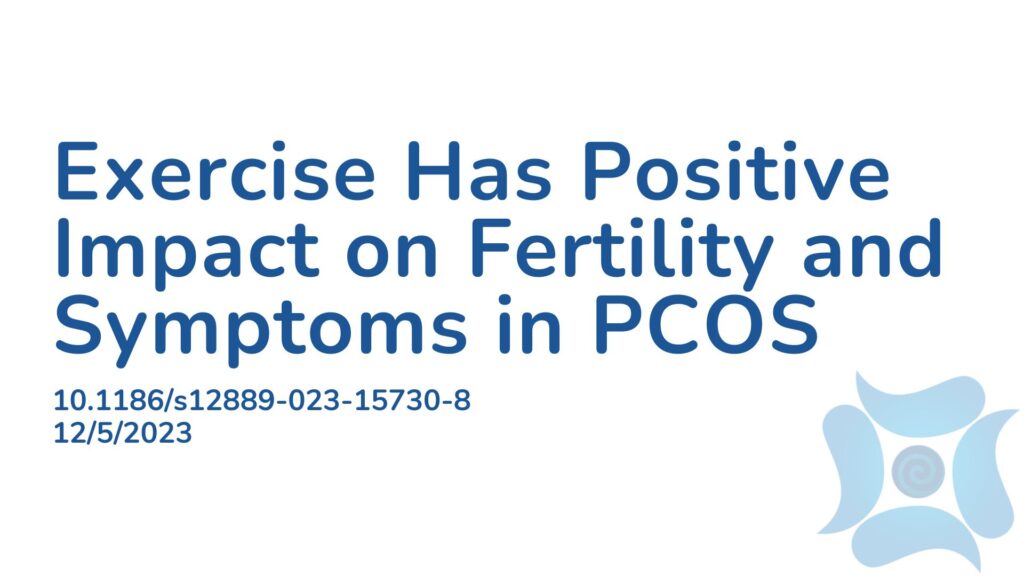Summary:
Polycystic ovary syndrome (PCOS) is a common endocrine disorder affecting millions of women globally, often left undiagnosed until later years. It’s exact cause remains unclear, though genetics and environmental factors like lifestyle and diet play significant roles. Diagnosis typically follows a criteria of presence of two of three indicators: irregular ovulation, hyper-androgenism, and polycystic ovaries on ultrasound. PCOS also manifests with various fertility issues, metabolic disturbances, and psychological impacts. Evidence-based guidelines emphasize lifestyle changes, including diet and exercise, to manage PCOS by addressing weight, obesity, and insulin resistance. Physical activity is particularly crucial, yet research on its specific reproductive benefits for PCOS remains limited. This systematic review aimed to bridge this gap by examining how different exercise regimes can positively influence reproductive functions in women with PCOS, in order to inform healthcare strategies. A total of seven randomized-controlled trials met the inclusion criteria for this review. These studies evaluated various physical activity interventions in terms of intensity and duration, assessing improvements in reproductive functions, hormonal levels, and menstrual regularity. The results showed that incorporating physical activity alone or in combination with other treatments yielded significantly positive outcomes for reproductive health. The authors therefore concluded that physical activity shows promise in enhancing reproductive functions and mitigating infertility, as well as alleviating social and psychological stress among women with PCOS.
Abstract:
Background: Polycystic ovary syndrome (PCOS) is among the predominant endocrine disorders of reproductive-aged women. The prevalence of PCOS has been estimated at approximately 6–26%, affecting 105 million people worldwide. This systematic review aimed to synthesize the evidence on the effects of physical activity on reproductive health functions among PCOS women.
Methods: The systematic review includes randomization-controlled trials (RCTs) on physical exercise and reproductive functions among women with PCOS. Studies in the English language published between January 2010 and December 2022 were identified via PubMed. A combination of medical subject headings in terms of physical activity, exercise, menstrual cycle, hyperandrogenism, reproductive hormone, hirsutism, and PCOS was used.
Results: Overall, seven RCTs were included in this systematic review. The studies investigated interventions of physical activity of any intensity and volume and measured reproductive functions and hormonal and menstrual improvement. The inclusion of physical activity alone or in combination with other therapeutic interventions improved reproductive outcomes.
Conclusion: The reproductive functions of women with PCOS can be improved with physical activity. Furthermore, physical activity can also reduce infertility, as well as social and psychological stress among women.
Article Publication Date: 12/5/2023
DOI: 10.1186/s12889-023-15730-8




